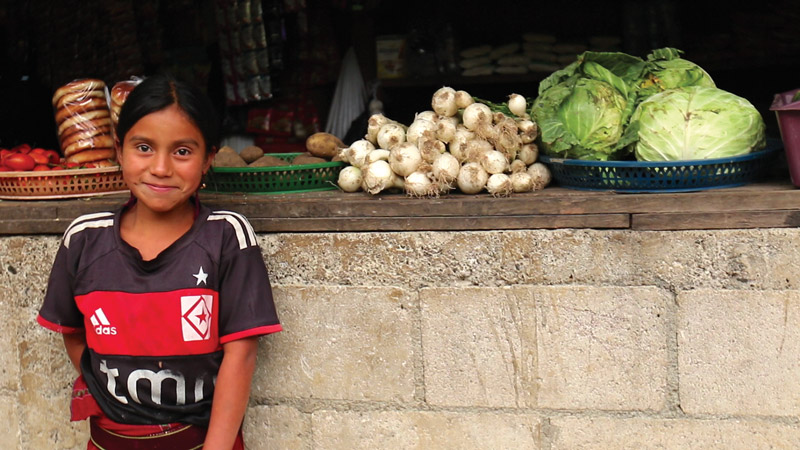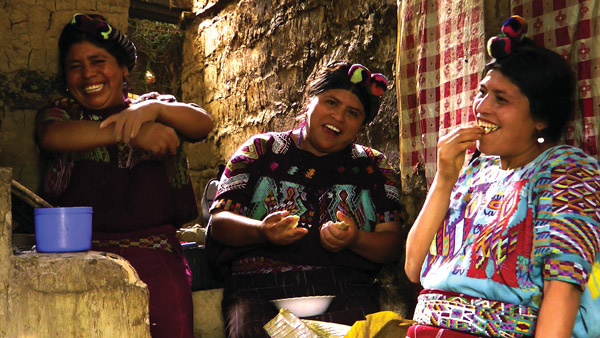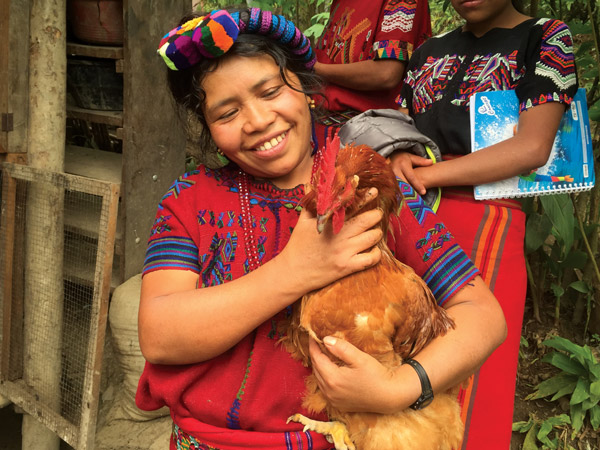Food Sovereignty for Guatemala
Update from The Coffee Trust on The Food Sovereignty Project
Coffee is grown on some of the world’s richest lands, yet most coffee farmers cannot properly feed their families. Before relying on cash from coffee, families grew their own food on the same land.
Their ancient knowledge of agriculture and how to grow and prepare nutritious foods was passed down from generation to generation. However, the lure of cash for coffee drew families away from their traditional lifestyles and that knowledge was lost.
Farmers have since become dependent upon coffee and other cash crops for all their needs.
The Coffee Trust, a nonprofit organization that helps coffee farmers overcome poverty, has a Food Sovereignty Project in the Ixil region of Guatemala that focuses on reintroducing the ancient agricultural skills farmers have lost.
The project trains women to take ownership over their own food production and be liberated from their reliance on cash from coffee for food.
Families in the program learn to plant and maintain gardens, prepare nutritious foods, raise hens for eggs, produce compost, use medicinal plants, and apply effective microorganisms (probiotics for plants) to improve soil and crop health.
Participants also learn to build efficient stoves to prevent smoke inhalation from in-home, open-fire cook stoves, which cause respiratory illnesses. They also learn to use water filters to reduce easily preventable water-borne disease.
Just as these practices were passed down, The Coffee Trust’s training program passes along these practices from farmer to farmer and family to family, building trust between neighbors and empowering communities.
The Coffee Trust believes that when farmers learn from each other, they empower themselves with their own knowledge and a belief in their own power to dictate their future.
“I started preparing my garden, and with help I sowed my vegetable seeds. Now I don’t buy vegetables. I use the vegetables in my garden. And my son and I eat six eggs a week from my two hens,” said Magdalena Rivera Ramírez, a Food Sovereignty Project participant.
The Food Sovereignty Project is a multi-level program:
Level 1: When a woman first joins the program she learns how to compost, produce and use effective microorganisms, and grow her own family vegetable garden. Once she has a full, healthy garden, she learns how to build a chicken coop.
Level 2: When the coop has been built, she receives 10 chicks from another woman in the program who has already successfully raised her hens. When the chicks have grown and every member of the household can eat one egg per day, extra eggs are sold for added income.
Level 3: When a participant has successfully grown a garden, raised hens, and is earning income from egg sales, she participates in a cuchubal. A cuchubal is a Guatemalan tradition in which a group of women pool their savings each month and one woman is selected to receive the funds.
She can use the money to purchase an efficient, ventilated stove or water filter. The same practice takes place monthly until everyone has an efficient stove and a water filter.
When one-third of the community has taken control over its own food production, the Food Sovereignty Project will be self-sustaining. The participants will take over the training, and The Coffee Trust will move on to train another community.
The long-term vision is for the Ixil region to become a training center for other coffee-growing communities around Guatemala and elsewhere. Despite being one of the poorest coffee-growing regions at origin, the Ixil region will serve as an example of self-empowerment for generations to come.
Learn more at coffeetrust.org



I’d be interested in a follow up article in a couple of years.